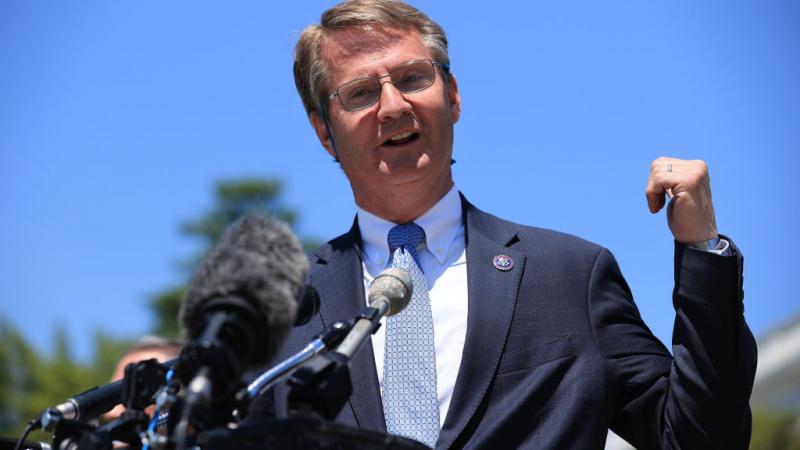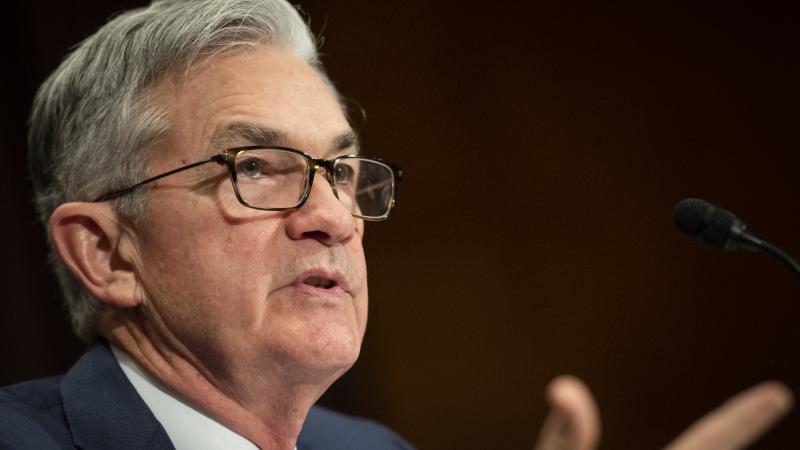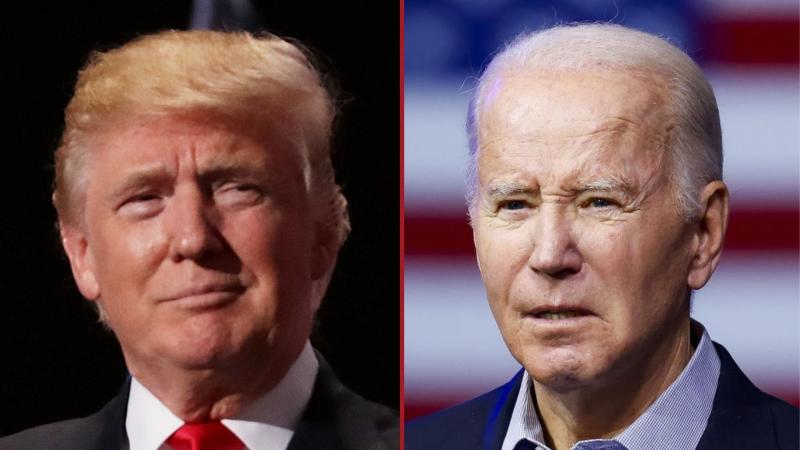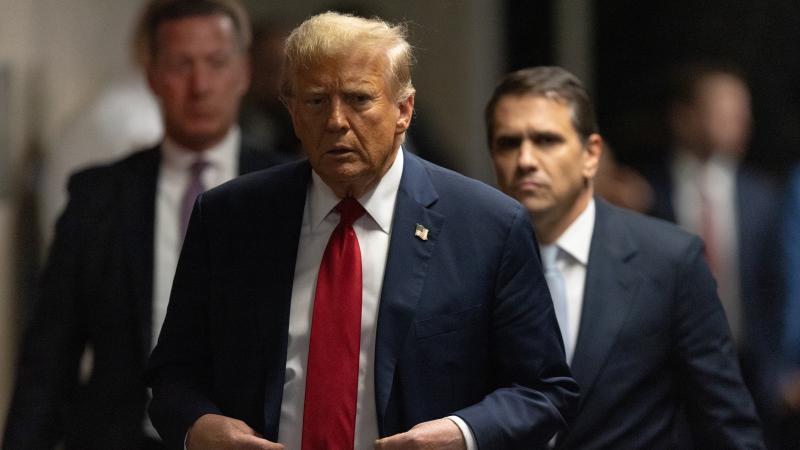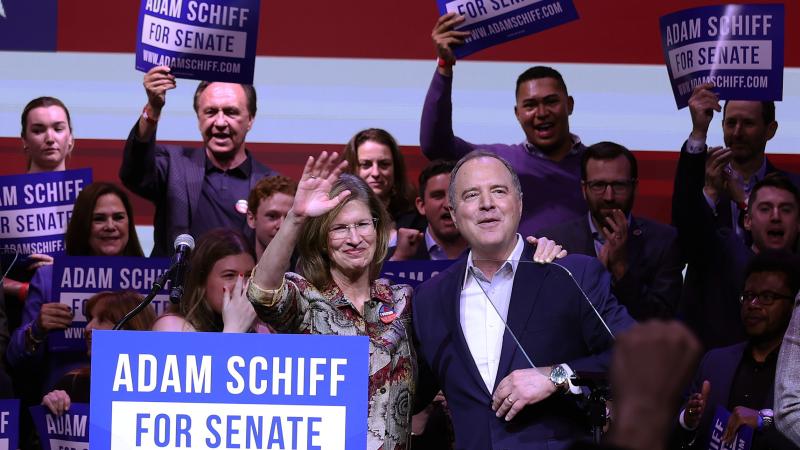State attorneys general visit White House, eye remedies for social media discrimination
State AGs, Barr discuss lifting online platforms' broad immunity from civil liability for user-generated content under Section 230 of the Communications Decency Act.
Nine state attorneys general concerned that tech giants like Facebook, Twitter and Google are censoring conservatives are working with President Trump to discuss remedies to level the playing field.
"In recent years, a small group of powerful technology platforms have tightened their grip over commerce and communications in America," Trump said at the White House after the meeting Tuesday. "They've used this power to engage in unscrupulous business practices while simultaneously waging war on free enterprise and free expression. At the urging of the radical left, these platforms have become intolerant of diverse political views and abusive toward their own users. And I think we could say as abusive as you could possibly be, in some cases."
The state attorneys general joined U.S. Attorney General William Barr alongside U.S. Sen. Josh Hawley (R-Mo.) to discuss possible changes to Section 230 of the Communications Decency Act. That provision provides broad civil immunity to online platforms, both for hosting and for removing third-party content. In May, President Trump signed Executive Order 13925 — the first-ever EO specifically directed at combatting what it said was online platforms censoring lawful speech on the basis of political viewpoint.
State Attorney General Ken Paxton of Texas told Just the News that tech giants could be engaging in deceptive trade practices by saying they have an open platform but then actually providing something else.
"And then if you're discriminating against viewpoints one way or the other, you know, we'd be interested in that," Paxton said. "We don't care which viewpoint you're discriminating against. We want to make sure that if you are saying it's an open platform, that it truly is what you're saying it is. Otherwise you are creating some consumer harm and promising something that you're not actually delivering."
Trump's EO directed the National Telecommunications and Information Administration (NITA) to file a petition for rulemaking with the Federal Communications Commission to clarify the scope of Section 230 and directs the Federal Trade Commission to consider enforcement actions against social media companies for possible violations of Section 5 of the Federal Trade Commission Act.
On Wednesday, the U.S. Department of Justice submitted a proposal to Congress that would require the companies to assume a greater amount of responsibility for managing the content on their platforms.
"It's clear that Section 230 was adopted in the infancy of all of these companies," Paxton said. "And now we have a very different situation where these companies are some of the largest companies, not just in the United States, but in the history of the world. And so they're in a much different position than they were when we started. And they probably, one, don't need the same protections they had, and, two, they've evolved. And they may be taking advantage of Section 230 in ways that we never anticipated. Certainly Congress never anticipated."
The group visiting the White House also included attorneys general Mark Brnovich of Arizona, Jeff Landry of Louisiana, Lynn Fitch of Mississippi, Eric Schmitt of Missouri, Alan Wilson of South Carolina, Sean Reyes of Utah, Leslie Rutledge of Arkansas, and Patrick Morrisey of West Virginia.
"I have seen a lot of similar types of complaints, a lot of information and evidence that you could make a case for intentional types of subversion, taking people off of platforms because of political views," Reyes of Utah told Just the News. "And so that's, again, something that I think will be of great interest. I believe that's part of the discussion. It's not a new discussion, because I think some people say, 'Oh, it's just an election sort of issue.' It's not. We've been talking about these issues for a number of years with the Department of Justice. And I'll be fair to — again, it's not just about conservatives — anybody who's having their speech regulated, because the particular content moderator has a problem with it."
Reyes said his tech industry credentials — as a tech firm general counsel, investor in tech companies as a partner in a tech venture fund, and a lawyer for various tech companies — give him a more nuanced appreciation for how Section 230 can ensure that technology companies can continue to cooperate with law enforcement on issues like child pornography and human trafficking.
"Now, as a regulator over tech companies, I'm careful to say Section 230 has a purpose ... especially when it comes to startup companies or emerging companies, to protect against frivolous lawsuits or content that you really have no control over," Reyes said. "When you get bigger and larger, I think the expectations should increase and that you should be able to do more to be more proactive, and less able to just say, 'Hey, we're not going to do anything because 230 shields us.'"
Just the News reached out for comment to Google, Twitter and Facebook about Section 230. None of the three companies responded on that issue specifically, though a spokesperson for Google did address a previous Just the News report about Google facing accusations of manipulating search results to selectively limit exposure for right-leaning news websites.
"There is no validity whatsoever to these allegations of political bias," the spokesperson said in a statement provided to Just the News. "Our systems do not take political ideology into account, and we go to extraordinary lengths to build our products for everyone in an apolitical way. Anyone can easily cherry-pick a range of conservative, progressive or non-political sites that have seen traffic changes over time. The improvements we make to Search are done to provide helpful information for the billions of queries we get every day."
In response to a previous question from Just the News about alleged anti-conservative bias and censorship at YouTube, a spokesperson for the video-sharing giant said that its rules governing prohibited content are spelled out in the platform's Community Guidelines and are enforced consistently without political bias.







